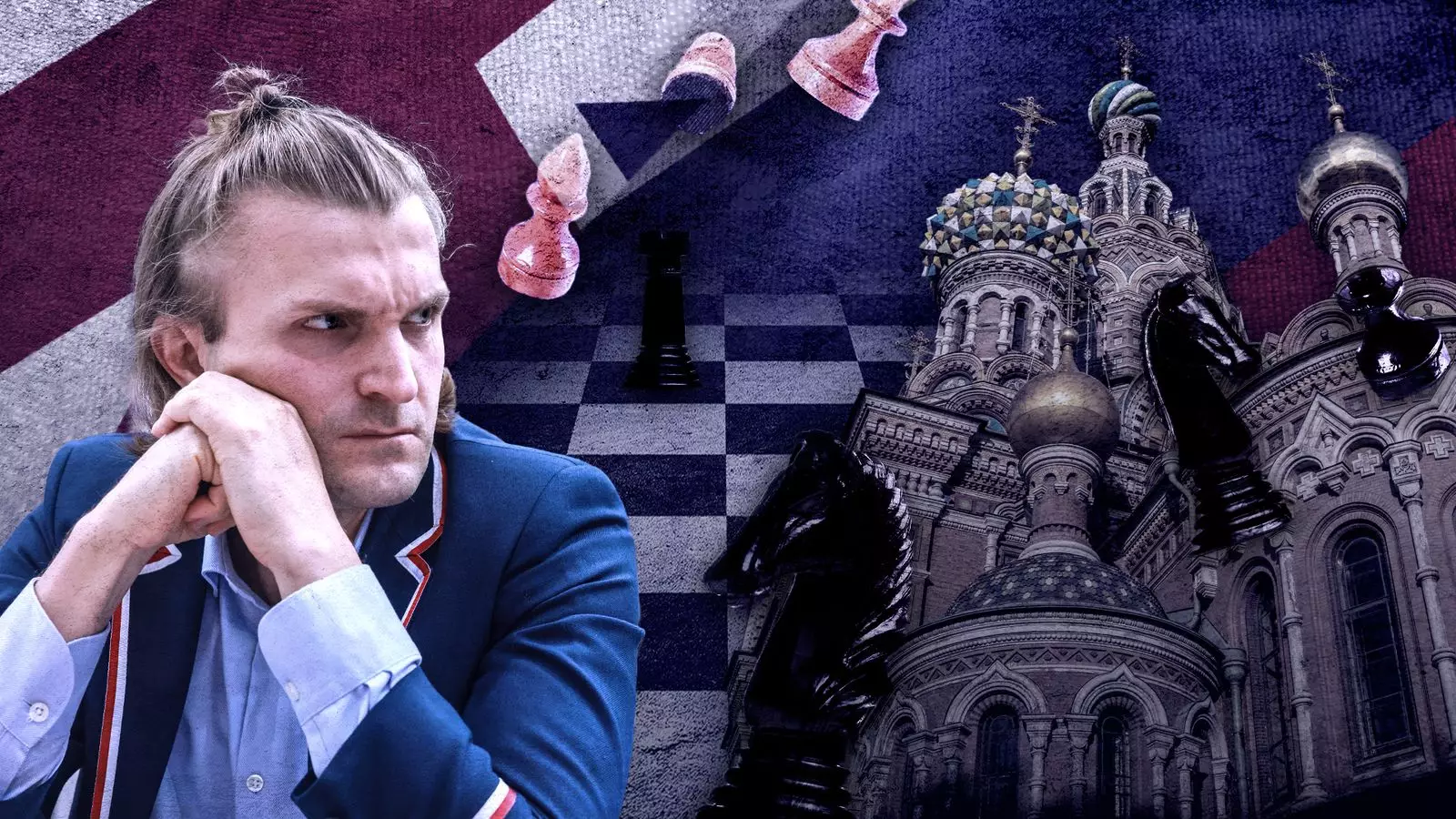In a world entangled with political strife and turmoil, the journey of chess grandmaster Nikita Vitiugov reflects a narrative of resilience and transformation. After years of carving his identity in Russia’s prestigious chess circles, Vitiugov has found solace in London, which he likens to the weather of his native St. Petersburg. “The rain, the clouds, the lack of sun – I feel at home here,” he reveals in a candid conversation, highlighting how the city offers comfort amid the chaos surrounding the chess community and beyond.
Having risen through the ranks as one of Russia’s most promising talents, Vitiugov’s life took a tumultuous turn following his vocal stance against the war in Ukraine. His defection from Russia symbolizes not only a personal exodus but also a significant statement against a backdrop of increasingly dangerous dissent within his homeland. As the world continues to grapple with the ramifications of the Ukraine conflict, Vitiugov represents a new wave of chess players who refuse to play under a regime that goes against their principles.
Vitiugov’s transition from being the reigning Russian chess champion—an accolade he once took immense pride in—illustrates the profound impact of political turmoil on personal identity. He describes this metamorphosis as akin to a “divorce,” a heart-wrenching severance from the life and dreams he had built in Russia. His Twitter statement, “You can’t defend yourself on foreign territory. Russians and Ukrainians are brothers, not enemies. Stop the war,” epitomizes the courage it takes to challenge the prevailing narrative in a country fraught with repression.
As players like Vitiugov prioritize ethics over allegiance, the stakes in chess seem to have shifted dramatically. While the chess world no longer garners the same feverish attention as during the duels of titans like Bobby Fischer and Garry Kasparov, the game’s political significance remains poignant. Vitiugov’s decision to play for England both as a new home and a new flag has rekindled the notion that artistry in chess can thrive despite geopolitical strife.
In the current landscape, drawing parallels between chess and diplomacy adds layers of complexity to each match played. The response of the global chess community since the onset of the Ukraine war indicates a collective stand against aggression. The Russian Chess Federation, now facing sanctions, reflects a broader trend where athletes in various domains are being held accountable for the actions of their governments. This dynamic engenders challenges and opportunities for players navigating their careers in an increasingly politicized environment.
Interestingly, Vitiugov’s choice to switch national allegiances diverges from many players who have opted for less contentious alternatives. Instead of seeking asylum with less tumultuous nations, his transition to the English Chess Federation stands as a testament to his commitment to seeking a more liberal and free atmosphere for his aspirations—and those of his family. With his wife and young son, Vitiugov has embraced the freedoms in the UK, valuing the opportunity for his son to forge a future outside the shadows of conflict.
As Vitiugov prepares for the London Chess Classic, excitement blends with introspection. The tournament not only serves as a platform for his talents but as an avenue to reintegrate into the chess elite. Despite the upheaval of the past few years, which he recognizes as a defining chapter in his narrative, Vitiugov’s path remains illuminated by hope. Emulating his idol Viktor Korchnoi, a figure known for his own courageous departure from the Soviet bloc, Vitiugov aims not just to compete but to invigorate the English chess scene.
His emergence as England’s top player has not only elevated his personal standing but has also raised the competitive fabric of the country. Malcolm Pein, director of international chess for the English Chess Federation, lauds how Vitiugov’s presence has rekindled a sense of ambition within the team, inspiring a new generation of players.
With glowing prospects ahead, the British Championships loom on the horizon. Will Nikita Vitiugov, once a symbol of Russian brilliance, emerge as the new king of English chess? The narrative around his journey underscores a profound intersection of sports and politics. Each move on the chessboard not only symbolizes tactical prowess but also serves as a reminder of the human spirit’s resilience in the face of adversity.
Ultimately, Vitiugov’s story is emblematic of a broader shift within the chess community as it continues to evolve amid challenges. His journey from Russia to London reflects both personal sacrifice and the hope for a brighter, more inclusive future for chess—one where freedom of thought prevails, and every player can aspire to greatness without fear.


Leave a Reply